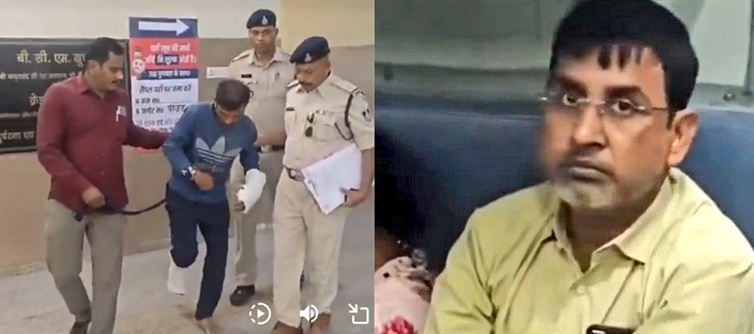
 How India’s Justice System Protects the Powerful and Punishes the Powerless - One Law, Two Realities
How India’s Justice System Protects the Powerful and Punishes the Powerless - One Law, Two Realities

🔥WHEN JUSTICE DEPENDS ON YOUR LAST NAME
Justice in india doesn’t wear a blindfold anymore — it wears a caste mark and carries a bias.
When the poor or marginalized are accused, the police act with vengeance. When the privileged are caught red-handed, the system turns into a symposium of silence.
Two cases — one involving a man brutally beaten in custody, another of an accused child molester who remains untouched by the law — lay bare a nation where your social identity determines your punishment, not your crime.
⚖️ THE DOUBLE STANDARD OF LAW ENFORCEMENT
In one case, the police acted like vigilantes — fracturing bones, inflicting violence, and celebrating brutality as justice.
In another, even with proof of molestation on a train, the accused remains unharmed, unarrested, and unbothered — because his social privilege shields him from accountability.
This is not law and order. This is law by order — where enforcement is selective, empathy is biased, and justice is conditional.
👣 BRUTALITY IS NOT JUSTICE
No civilized society should ever celebrate police violence.
Beating up an accused might feel like instant justice, but it’s barbaric, unconstitutional, and ultimately counterproductive.
It doesn’t reform — it brutalizes. It doesn’t deter — it dehumanizes.
If police brutality becomes the standard, then justice becomes a performance — a street show of power, not a process of truth.
🧬 CASTE, CLASS, AND THE INVISIBLE PRIVILEGE
The silence in the second case reveals what every indian already knows but few dare say:
Justice bends differently for different castes.
The higher your social status, the longer your leash.
The more connections you have, the slower the law moves.
Meanwhile, Dalits, minorities, and the poor are detained, beaten, or even killed without trial — often on mere suspicion.
This is not a justice system. This is a hierarchy of impunity.
🧠 A SYSTEM THAT PROTECTS ITS OWN
When complaints are tagged to the PMO, police, or the National Commission for Women, and still nothing happens, the message is clear:
Power protects power.
The machinery doesn’t malfunction — it obeys orders.
India’s problem is not just corruption — it’s institutional bias. A bias so deep it sees some crimes as unforgivable and others as inconvenient.
🧱 PREVENTION OVER PUNISHMENT
Real justice isn’t about how hard you hit the guilty — it’s about how you prevent the crime in the first place.
That means:
Sexual education and awareness from schools upward.
Police sensitivity training, especially on gender and caste bias.
Speedy and impartial trials, not media spectacles.
Accountability for officers who ignore or mishandle complaints.
Until the focus shifts from punishment to prevention, india will keep producing both victims and vigilantes.
💔 WHEN CITIZENS LOSE FAITH
A society begins to collapse not when crimes increase, but when faith in justice disappears.
Every unarrested predator and every beaten suspect drives another nail into that coffin.
Citizens no longer trust the police to protect, only to perform.
When the weak fear the cops and the powerful laugh at them, the idea of justice itself starts to rot.
🧨 FINAL WORD: JUSTICE CAN’T BE CASTE-CODED
india cannot call itself a democracy while it continues to deliver unequal justice.
If the system crushes the powerless and coddles the privileged, it’s not law — it’s oppression in uniform.
The rule of law must mean the same thing for everyone.
Until that day arrives, india will remain a country where justice depends not on what you did, but on who you are.



 click and follow Indiaherald WhatsApp channel
click and follow Indiaherald WhatsApp channel